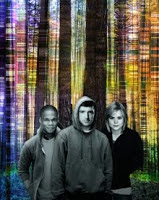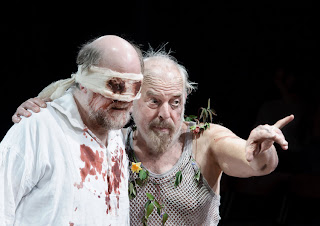Good news for Book Clubs from recent scientific research allegedly showing that "Being pulled into the world of a gripping novel can trigger actual, measurable changes in the brain that linger for at least five days after reading."
Emory University in Atlanta used 21 students ~ admittedly not a massive sample, given that the population of its home state Georgia is ten million ~ and found that "reading a good book may cause heightened connectivity in the brain and neurological changes that persist in a similar way to muscle memory.
The changes were registered in the left temporal cortex, an area of the brain associated with receptivity for language, as well as the the primary sensory motor region of the brain." This is the area associated with "grounded cognition", the phenomenon which shows thinking about an action can activate the neurons associated with that physical act.“The neural changes that we found associated with physical sensation and movement systems suggest that reading a novel can transport you into the body of the protagonist,” said neuroscientist Professor Gregory Berns, lead author of the study. "We already knew that good stories can put you in someone else’s shoes in a figurative sense. Now we’re seeing that something may also be happening biologically.”
The students read the same text, Robert Harris's thriller Pompeii, over 19 days and were given brain scans each morning and for five days after completing the book. This was the bit Prof Berns got excited about: "Even though the participants were not actually reading the novel, they retained the heightened creativity... almost like a muscle memory." Anyone who was a bookish child will recognise this effect without the need for science. I must be one of many who can recall protagonists in the books I inhabited more vividly than many real people. And there's a general acceptance that films and videos have a huge influence on those who watch them. If imagined scenarios on page or screen can significantly stimulate mental activity, what about plays?
The exorbitant cost of seats in large venues can maybe take part of the blame: the 'market' is seen as children who want easy and funny, and older middle-class who want familiar-name revivals. I don't think either assumption is true. In the Pub Theatre I co-run with founder Rosie Finnegan, audience feedback often comments with huge positivity about how unexpected, and powerful, they find the plays we put on. "Thought-provoking" is a frequent comment, alongside enthusiastic accolades.
A play is finished sooner (probably) than a novel, but live performance has the added element of shared experience ~ in situations not bounded by red plush seats, this can magnify responses to the dreaded mob mentality. Maybe that's what Queen Elizabeth feared. Playwrights like Tim Crouch are already deliberately exploring the impact of audience on performance in their writing. Maybe what we need is less posh sets and media stars in title roles, and more plays that reflect on ordinary life. It's not escapist glamour, but that's what Strictly Come Dancing is for, isn't it?













